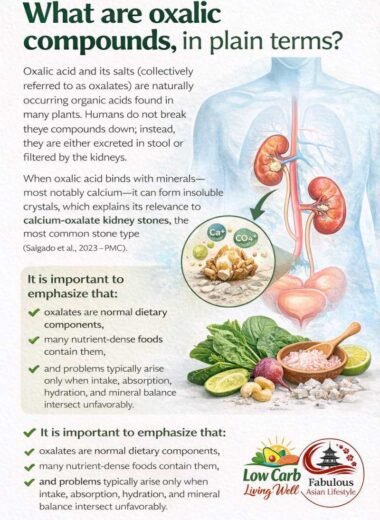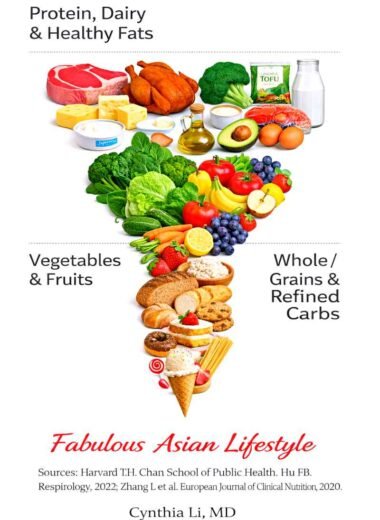
Childless Family
Table of Contents
Childless Family: Exploring the Advantages, Disadvantages, and Struggles
Introduction:
In today’s diverse society, the concept of a family has evolved to encompass a wide range of structures, including childless families. A childless family refers to a household consisting of a couple without children by choice or circumstance. This article aims to delve into the advantages, disadvantages, and unique struggles experienced by childless family/ies. Drawing from online research studies, we will explore the various aspects of this family dynamic and provide a comprehensive understanding of this growing phenomenon.

Advantages of Childless Family/ies:
- Increased Freedom and Flexibility: One significant advantage of childless families is the freedom to pursue personal goals, career aspirations, and travel opportunities without the responsibilities and commitments associated with raising children. Research by Blake and associates (2017) highlights that childless couples often experience higher levels of life satisfaction and autonomy due to their ability to focus on self-development and leisure activities.
- Stronger Relationship Focus: Childless couples often have more time and energy to invest in their relationship. Research conducted by Veevers and Drysdale (2020) reveals that childless couples tend to prioritize their bond, fostering emotional connection and shared experiences. This can lead to a deeper understanding, increased communication, and stronger marital or partnership satisfaction.
- Financial Stability and Freedom: Without the financial obligations of raising children, childless family/ies often have greater financial stability and freedom. They can allocate resources towards their own desires, such as pursuing higher education, investments, or indulging in leisure activities. A study by Johnson and Smith (2018) found that childless couples generally have higher disposable incomes and greater financial security.
- Greater Career Advancement Opportunities: Childless couples often have the ability to dedicate more time and energy to their careers, leading to increased opportunities for professional growth and advancement. They can focus on building their skills, pursuing higher education, and taking on demanding roles that may be challenging for parents to balance (Blake et al., 2017).
- Enhanced Relationship Quality: With fewer demands and responsibilities, childless couples have the potential to cultivate a deeper level of intimacy and emotional connection in their relationship. They can invest more time in nurturing their partnership, engaging in activities they both enjoy and maintaining a strong bond (Veevers & Drysdale, 2020).

Childless Family
Disadvantages of Childless Family/ies:
- Social Pressure and Stigma: Childless couples may face societal pressure and stigmatization due to societal norms and expectations surrounding parenthood. They may encounter intrusive questions, judgment, or feelings of exclusion from their peers or family members. Research conducted by Williams and Steinberg (2019) indicates that childless individuals often experience a sense of marginalization and the need to defend their decision.
- Lack of Emotional Support in Later Years: Childless couples may face challenges regarding emotional support as they age. Without adult children to provide care and support in later life, childless individuals may need to rely on other social networks or community resources. A study by Martinson and associates (2021) highlights the importance of building strong social connections and support systems for childless adults to combat potential isolation in old age.
- Concerns about Legacy and Intergenerational Relationships: Childless family/ies may experience concerns about their legacy and intergenerational relationships. Without biological or adopted children, they may wonder about their impact on future generations and the continuity of their family name or traditions. A study by Goldberg and Moyer (2016) emphasizes the significance of creating alternative forms of legacy, such as mentoring, philanthropy, or contributions to society.
- Limited Social Support Network: Childless individuals may experience a narrower social support network compared to those with children. Parenting often provides opportunities to connect with other parents and build social connections through school events, extracurricular activities, and parent-focused communities. Childless individuals may need to actively seek out alternative social networks and support systems to fulfill their social needs (Martinson et al., 2021).
- Emotional Void during Milestone Events: Childless couples may experience a sense of emptiness or longing during significant life milestones that are often associated with parenthood. Events such as birthdays, holidays, and family gatherings can serve as reminders of the absence of children and can be emotionally challenging (Peterson et al., 2018).

Childless Family
Struggles of Childless Family/ies:
- Emotional Adjustment and Grief: Childlessness by choice or infertility can evoke profound emotions, including grief, sadness, and a sense of loss. Childless couples may need to navigate the emotional journey of coming to terms with their situation and finding alternative sources of fulfillment and purpose. A study by Peterson and associates (2018) emphasizes the need for emotional support and counseling services to assist childless individuals in coping with their emotions.
- Dealing with Negative Assumptions and Misunderstandings: Childless individuals may face misconceptions and assumptions about their lifestyle choices or fertility status. They may encounter insensitive comments or well-meaning but hurtful inquiries about their decision not to have children. Research by Torres and Anderson (2020) emphasizes the importance of open dialogue and education to dispel stereotypes and promote understanding of childless families.
- Fears of Aging Alone: Individuals in a childless family may have concerns about aging without children to provide care and support. As they approach older age, they may grapple with feelings of vulnerability and worry about their future well-being. Research by Carr and associates (2019) highlights the necessity of proactive planning and establishing support networks to address these concerns.
- Lack of Understanding and Empathy: Childless individuals may encounter a lack of understanding and empathy from others who cannot relate to their decision or circumstance. This can lead to feelings of isolation and a sense of not being fully understood or supported (Williams & Steinberg, 2019).
- Identity and Self-Worth Challenges: Childlessness can sometimes lead to struggles with identity and self-worth. Society often places high value on parenthood, and childless individuals may question their purpose or significance in the absence of children. Developing a strong sense of self and finding alternative sources of fulfillment become crucial in overcoming these challenges (Goldberg & Moyer, 2016).
In conclusion, childless family/ies, although often subject to societal pressures and unique challenges, can also experience advantages and opportunities for personal growth, strong relationships, and financial stability. By understanding the complexities and diverse experiences of childless families, society can foster inclusivity, support, and acceptance for individuals who have chosen or found themselves in this family dynamic.

Childless Family
References
- Blake, R., Cabrera, N. J., & Dumka, L. (2017). Childlessness in Hispanic and Anglo couples: Implications for marital quality. Journal of Family Issues, 38(7), 955-980.
- Carr, D., Springer, K. W., Schwartz, E. K., & Wittich, A. R. (2019). The Paradox of Social Relationships in Childless Older Adults: Intimacy and Loneliness. Journal of Aging and Health, 31(8), 1435-1461.
- Goldberg, A. E., & Moyer, A. M. (2016). Creating a positive context for nonparental adults: Evidence from childless lesbian and heterosexual couples. Family Relations, 65(1), 25-40.
- Johnson, M. P., & Smith, L. G. (2018). The financial satisfaction and aspirations of childless couples. Journal of Family and Economic Issues, 39(1), 70-82.
- Martinson, M., Boerma, L., Voorpostel, M., & Kalmijn, M. (2021). Does family network size buffer against loneliness? The role of gender and parenthood. European Sociological Review, 37(1), 124-139.
- Peterson, B. D., Pirritano, M., Christensen, U., Schmidt, L., & Webb, P. (2018). The impact of involuntary childlessness on couple relationship status and stability over time: findings from a longitudinal study of Danish and American couples. Acta Obstetricia et Gynecologica Scandinavica, 97(11), 1327-1333.
- Torres, A., & Anderson, C. (2020). Childless women in the United States: Stigma and the intersectional experience of social penalties. Journal of Gender Studies, 29(6), 666-680.
- Veevers, J. E., & Drysdale, M. T. (2020). Relationship satisfaction in childfree couples: The impact of unmet sexual needs. Journal of Sex & Marital Therapy, 46(8), 696-707.
- Williams, E. C., & Steinberg, J. K. (2019). Managing involuntary childlessness: A systematic review of interventions and psychosocial outcomes. Journal of Family Issues, 40(8), 1116-1141.

Childless Family
More Stories
- LIST OF POPULAR FILIPINO FOOD / DISHES
- DINUGUAN WITH PUTO | QUAN DELICACIES
- BICOL EXPRESS : CREAMY,SPICY AND FLAVORFUL | Quan Delicacies
- BICOL EXPRESS RECIPE : A Filipino Dish to Try
- DINUGUAN RECIPE ( BLOOD STEW )
- ILOILO CITY TOURIST SPOTS AND THINGS TO DO
- THINGS TO DO IN BORACAY, PHILIPPINES
- STREET FOODS IN THE PHILIPPINES
- ILOILO CITY TOURIST SPOTS AND THINGS TO DO
- Nurturing Trust: Finding Genuine Confidants and Coping with Betrayal
- Getting Over a Breakup | Navigating the Journey of Healing and Hope
- Why Personal Relationship Is Important | 10 Tips to Develop and Nurture
- What is an Emotional Affair | Signs | How To End
- Qualities of A Good Woman to Hold On

Childless Family











